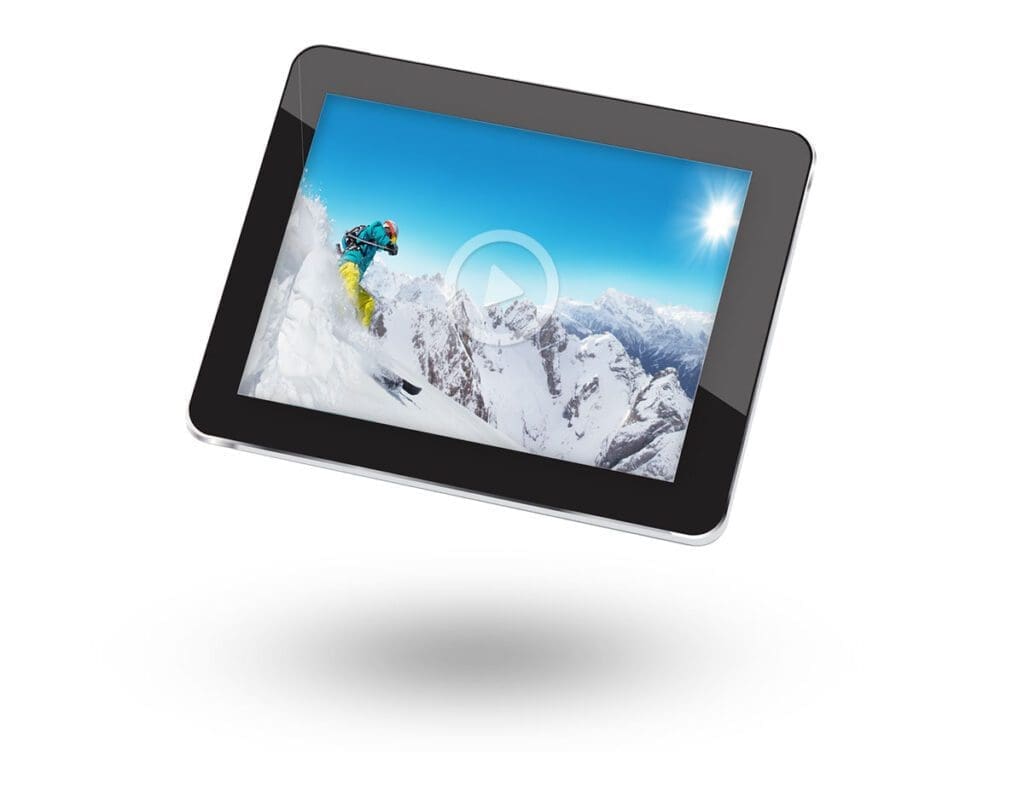We are happy to announce our brand new 4.2 adaptive streaming player release which comes with a lot of new features and enhancements around adaptive streaming, DRM and VR
We now support Adobe Access and Adobe PrimeTime protected streams, third party licensing servers and dynamic ad scheduling during runtime. The various API extensions, within v4.2 make it even easier to use and integrate our player solution in existing frameworks and applications.
Support for PrimeTime/Adobe Access DRM

Various different DRM technologies, such as Widevine, FairPlay, or Playready, arise from the need for content protection, claimed by content providers and studios. There is no doubt that content protection is one of the most important aspects in online video streaming scenarios today. More about DRM and adaptive streaming in general can be read in one of our recent posts.
Within v4.2 we have broadened our support for DRM technologies and in doing so, the platform coverage of our player in combination with content protected streams. To cover Firefox browsers, we have added Adobe PrimeTime support to our HTML5/JS based player and our Flash based fallback has been extended with the support for Adobe Access. A detailed explanation on how to make use of your protected content, can be found in our player documentation.
Support for Custom 3rd Party Licensing Servers
![]() Within v4.2, not only player functionalities have been added and updated, also the ability to use a custom third party backend with regard to licensing has been released. These handy features empowers you to apply any form of protection to your player against misuse, which fits your use case best. If a player instance has custom license checking enabled, all license calls are passed to a specified third party license server. The configuration of the third party license checking can be made in our backend application at https://portal.bitcodin.com/portal/player/third-party-licensing.
Within v4.2, not only player functionalities have been added and updated, also the ability to use a custom third party backend with regard to licensing has been released. These handy features empowers you to apply any form of protection to your player against misuse, which fits your use case best. If a player instance has custom license checking enabled, all license calls are passed to a specified third party license server. The configuration of the third party license checking can be made in our backend application at https://portal.bitcodin.com/portal/player/third-party-licensing.
To get a better understanding of the usage of a third party licensing server, we have prepared a demo server implementation and the corresponding documentation, which can be found in our Github account at https://github.com/bitmovin/licensing-demo.
Extended API and Events

As we build our player in a very API focused manner, adding new calls and events is always an important part of our development. For the v4.2 we have extended our existing interface with various different calls:
- setVRMode – call to change the VR/360° video rendering mode
- onSeeked – fired when seeking is finished
- scheduleAd – enables dynamical ad scheduling during runtime
- getManifest – returns the manifest of the currently loaded stream
- setAuthentication – provides the possibility to add custom data to the 3rd party license call
- onSourceLoaded/onSourceUnloaded – enables easy tracking about the current player state
- Timeshift via our API for Chromecast
A detailed documentation of the player API and events can be found in our online documentation.
Support for MPEG-DASH timed metadata (EMSG), similar to ID3 tags in HLS, and MPEG-DASH playout, based on MPEG transport stream (MPEG-TS) segments, have also been introduced. I am also happy to point you to a new feature regarding statistics, which has recently been added to our backend application – the brand new impression statistic overview.
What’s Coming Next?
The first step towards a HTML5/JS based HLS playout, which brings HLS to the browser in a native manner, without the requirement to have Flash or any other plugins installed, has already been made. So, we are looking forward to v4.3 which will include full HLS support. We have also planned various enhancements for our advertising support, player styling and much more.
Cloud encoding update: check out our new encoding API for .net in C#.
All the best,
Reinhard & the Bitmovin Team!




